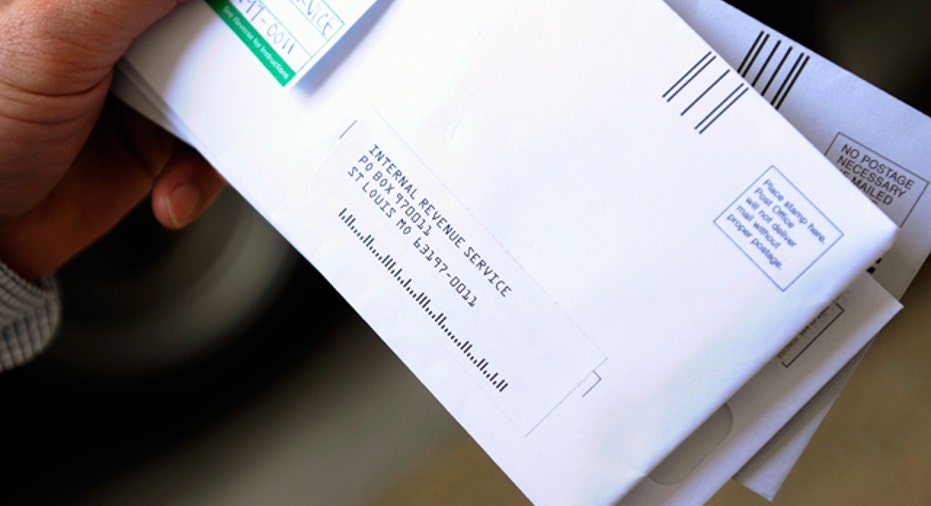Five Audit-Proofing Tips for the Self Employed

When you’re self employed filing a Schedule C with your tax return, your chances of being audited are greater than if you were a wage earner.
Why? Because the IRS suspects that you will attempt to either hide income or write off personal expenses as business deductions. Let’s face it, if all you are reporting on your tax return is income from a W2, what’s there to audit? Even if you input the numbers wrong, the IRS will match it up with the copy it got from your employer and send you a correction letter along with an adjustment to your refund or tax liability. According to various reports, audits of the self-employed are on the rise, here’s what you can do to keep the taxman off your back:
1. Use a professional software system to track the income and expenses of your business. Your credibility increases in the eyes of an IRS agent if your tax return is based on professionally-prepared financial statements, especially if maintained by an outside firm. You can use the same software to track your personal income and deductible expenses as well.
2. Document red flags. You are allowed to deduct all “ordinary and necessary business expenses” which translates into thinking in terms of “Would I make this purchase if I didn’t have this business?” If the answer is no, than you more than likely have a deductible business expense. But it’s important to know the rules and to have proper documentation to substantiate the deduction. Some expenses receive considerably more scrutiny than others.
The IRS loves to investigate automobile expenses as taxpayers are required to keep a mileage log, which can be a lot of work. Even though I have met only client who kept a log, I’ve represented clients in numerous audits and found other ways to substantiate the deduction to the satisfaction of the auditor. Here are some tips:
- If you use an appointment book or calendar, save it along with your copy of the tax return. A mileage log can be reconstructed from those pages.
- Save vehicle repair receipts as the odometer reading is recorded on them and total mileage for the year can be extrapolated if there is more than one receipt.
Record your beginning and ending odometer reading in your appointment book on Jan. 1 and again on Dec. 31.
- Travel, meals and entertainment expenses are close runner ups when it comes to scrutiny. Go to www.irs.gov and read Publication 463 to determine what you can and can’t deduct. Here’s what you need to know:
- Travel, especially to vacation destinations like Las Vegas or Hawaii should be documented with more than purchase receipts to prove business intent. Save things like flyers advertising the trade show or the continuing education seminar or letters from prospective clients at that location in your tax file to prove the purpose of the trip was primarily for business.
- On receipts for meals and entertainment mark the name of the person entertained and a brief note describing the business purpose.
With more people working remotely, home office expenses have become another favorite target of the IRS. Here’s what you should know:
- Take photographs of the house and the office area. The photos will serve two purposes: they will show the proportion of the business area compared to the personal living area to substantiate the amount of space claimed as well prove that there is in fact a business area.
- Know the rules: The home office must be your principle place of business and must be used exclusively and on a regular basis for business purposes.
3.) Document sources of all income. If you are audited, the first thing the IRS agent will do is add up all of the deposits from your personal and business bank accounts. If more money went into the bank than was declared on your tax return, the agent will want to know where the money came from and whether or not the income is taxable. If you use QuickBooks for your personal and business books, you will automatically tie out this income, but you still need proof. If the income you record is not taxable (e.g. gifts, inheritances, loans, transfers from personal funds) keep a copy of the check or document that accompanies the income to prove the source is not taxable.
4.) Let a professional prepare your income tax return. Self-prepared returns are more likely to be audited because the IRS thinks a nonprofessional has limited knowledge. Tax law is complex. And if you are self-employed, no matter how small your business, your tax return is now a complex creature.
5. Rethink your legal form. Corporations, LLCs, and partnerships are less likely to be audited, but that should not be the sole reason to incorporate. Discuss this option with a tax professional and your attorney before making any changes.



















